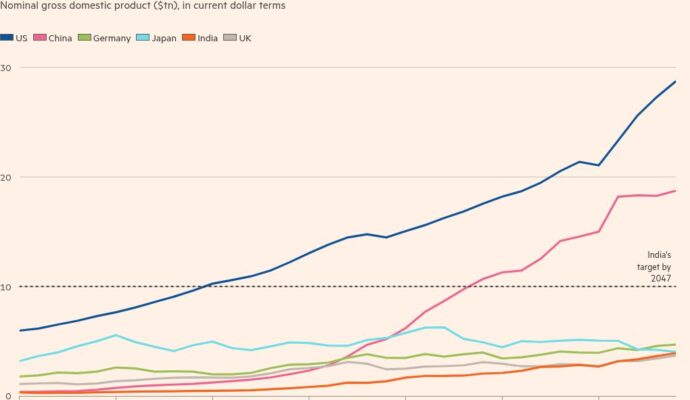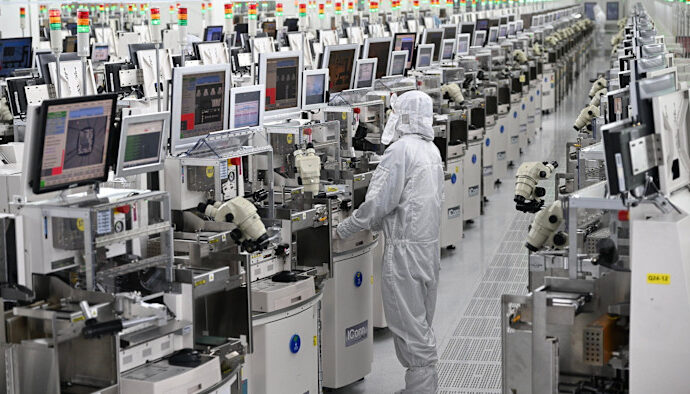Bunzl, the UK distributor of products that range from plastic spoons to PPE, is “de-risking” its supply chain by shifting some of its sourcing from China amid geopolitical concerns in the Asia-Pacific.
Frank van Zanten, chief executive, said that the company, which buys 10-15 per cent of the products it supplies to customers from China, was diversifying this sourcing into countries including Mexico, India, Vietnam and Malaysia.
Bunzl’s customers range from hotels to supermarkets, including Walmart, its largest customer by revenue. “We import about $1bn [in products] from China,” said Van Zanten. “But . . . we are reducing our exposure in China by moving to other countries.”
His comments come as tension rises between China and Taiwan — one of a number of issues dampening the investment appetite of European corporations.
A slew of businesses are reducing their reliance on China as a manufacturing hub, moving to different parts of south-east Asia and other developing countries, while some are “onshoring” their supply chains closer to their home markets.
“China is an important part of the world economy, so . . . I don’t think you can simply switch off China . . . but we are certainly de-risking,” added Van Zanten.
He said concern around a potential invasion of Taiwan was “certainly one of the issues that a lot of businesses are looking at”. Other companies are also looking at contingent plans, with telecoms group BT holding “war games” in 2022 to prepare for a disruption from any conflict in the region.
Bunzl’s supply chain solutions team is based in Shanghai and is responsible for auditing the group’s suppliers in Asia.
“They are helping our companies to source, and they have visibility in all our [Asian markets including those] outside of China, so it’s getting very easy to move business from one supplier to [another],” said Van Zanten.
The company has more than 10,000 suppliers around the world, but 75 per cent of the products it distributes are sourced in the countries where they are sold. North America accounted for just over 60 per cent of its sales in 2022. Its second-largest market is continental Europe.
Bunzl’s global supply chain gave the company a competitive advantage compared to its local competitors, said Van Zanten. This was “a key attraction” for the companies Bunzl acquired, he added.
Acquisitions has been one of the engines of growth for the group, which reported adjusted pre-tax profits of £818mn on revenues of £12bn in 2022. It recently announced that it has made 200 acquisitions since 2004, partly funded by its performance at the height of the coronavirus pandemic when its orders of disposable gloves, masks and hand sanitisers soared.
Marc van’t Sant, analyst at Citigroup, said Bunzl “traded very strongly through the pandemic because there was exceptional demand for a lot of their products”, adding that the company is “very cash generative” and the “M&A strategy has been largely self-funded”.
However, he also warned that the economic backdrop has shifted. “Funding costs are now materially higher than they were pre-pandemic so . . . on an incremental basis it makes M&A less accretive than it was.”


